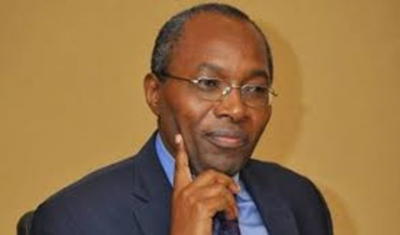
The Africa Continental Free Trade Agreement (AfCFTA) implementation will not happen in a vacuum but will require the whole of African governments’ cooperation, Director for Regional Integration and Trade Division in the United Nations Economic Commission for Africa (UNECA) Dr Stephen Karingi, said.
Delivering a keynote address during the recently held 9th edition of the Africa Think Tank Summit a flagship event of the African Capacity Building Foundation (ACBF) in Zambia between the 8th and 10th of November 2023, Dr Karingi said Ministers of Trade and Industries and Ministers of Investments as well as everyone involved in the implementation of AfCFTA protocols should realise the continental trade agreement cannot be divorced from the macro level.
He said UNECA views the AfCFTA as the investment that strengthens the macro economic in Africa.
“When we talk of domestic resource mobilisation, the first thing that comes to our minds is, how strong is the private sector? The AfCFTA is an instrument of the private sector which is basically the basis of the tax base of any economy that wants to be resilient,” he said.
Dr Karingi also said the implementation of the agreement should take into account the challenges that African countries and the global community are facing because of the question of sustainability and environmental preservation and the question of climate change.
“The AfCFTA also requires to be alive to the fact that all the African countries have made commitments to be part of the global efforts to create sustainable economies so that our health is not impacted because of what is happening in the environment,” said Karingi.
He reiterated that the AfCFTA would considerably increase intra-African trade without adding significant pressure to climate change, insisting that pursuing Nationally Determined Contributions (NDCs) as establishing an African carbon market on top of the AfCFTA reform would substantially reduce Green House Gas emissions that Africa contributes.
Article 4, paragraph 2 of the Paris Agreement of 2015 requires each Party to 'prepare, communicate and maintain successive nationally determined contributions that it intends to achieve.'
The AfCFTA, projected as Africa’s new engine of growth and integration was launched on January 1 2021 as a key reflector of Africa’s commitment to the United Nations’ Global Agenda 2030 and the vision underpinning the African Union’s Agenda 2063.
Running under the theme “Linking Evidence, Policies, and Practice to Contribute to the Implementation of the African Continental Free Trade Agreement,” the main objective of the Africa Think Tank Summit was to share ideas and experiences on Africa’s approach towards accelerated implementation of the AfCFTA and actionable suggestions of areas of improvement in regions and country levels, guaranteeing sustainable development in Africa.
----------END--------
For more information, contact:
Tsitsi Chakonza, +263777879339





